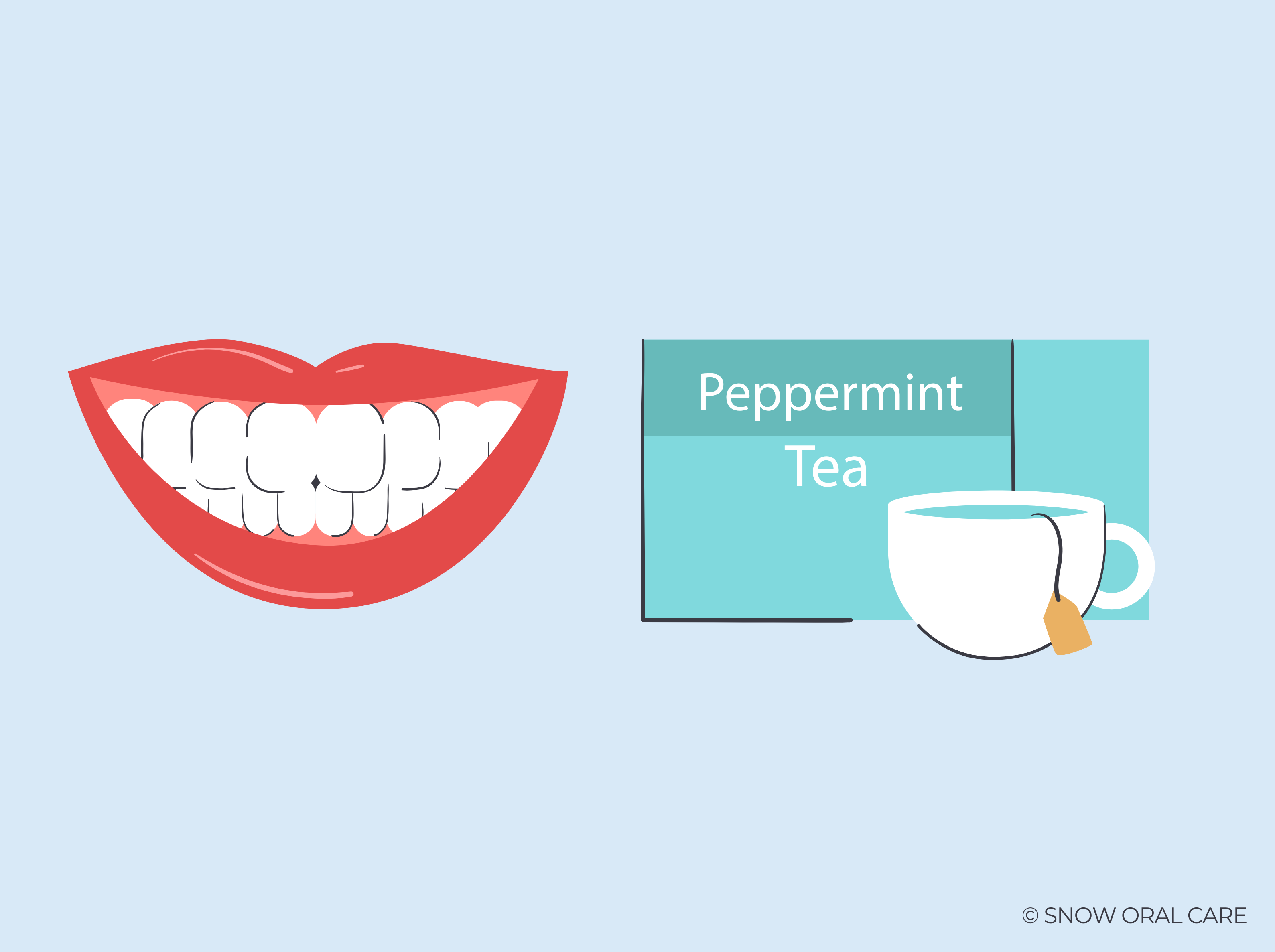Does Peppermint Tea Stain Teeth

The refreshing and invigorating world of peppermint tea, cherished by many for its numerous health benefits and refreshing taste. However, as with many other beverages, there’s a lingering concern about its potential impact on dental health, specifically whether peppermint tea can stain teeth. To delve into this, let’s examine the components of peppermint tea, the nature of tooth staining, and what existing research suggests about the relationship between peppermint tea consumption and tooth discoloration.
Understanding Peppermint Tea
Peppermint tea is made from the leaves of the peppermint plant, which is renowned for its cooling effect, thanks to its high concentration of menthol. Unlike black, green, or white tea, peppermint tea is an herbal tea, meaning it’s naturally caffeine-free and doesn’t contain the same level of tannins found in traditional teas. Tannins are compounds known to contribute to the staining of teeth. However, peppermint tea does contain certain compounds that could potentially affect tooth color, although the effect might be minimal compared to beverages with higher tannin content.
Tooth Staining: The Basics
Tooth staining can be either intrinsic (occurring from within the tooth) or extrinsic (occurring from external sources). Extrinsic stains are the ones that can be caused by dietary factors, including beverages. These stains appear as a result of chromogens (colored compounds) binding to the acquired pellicle, a protein layer on the tooth surface.
Beverages like coffee, tea, and red wine are well-known for their potential to cause tooth staining due to their high chromogen content. However, the impact of any beverage on tooth color also depends on factors such as oral hygiene practices, the frequency and volume of consumption, and the presence of other dietary factors that might either protect or further compromise dental health.
Peppermint Tea and Tooth Staining
When considering peppermint tea specifically, several factors suggest it may not be a significant contributor to tooth staining: 1. Low Tannin Content: As mentioned, peppermint tea is relatively low in tannins compared to traditional tea varieties. Tannins are one of the primary culprits behind tooth discoloration in tea. 2. Natural Antimicrobial Properties: Peppermint has natural antimicrobial properties that could potentially help combat bacteria in the mouth, which are responsible for plaque formation and associated with tooth staining and other oral health issues. 3. High Water Content: Peppermint tea is essentially an infusion of peppermint leaves in hot water, meaning it has a high water content. Water is not known to stain teeth; in fact, drinking water is encouraged for rinsing the mouth and helping to prevent the buildup of substances that could lead to staining.
Expert Insights and Recommendations
While there’s limited direct research on peppermint tea’s specific impact on tooth staining, dental experts generally agree that good oral hygiene practices can mitigate most risks associated with dietary factors. This includes: - Regular brushing with a fluoride toothpaste - Flossing daily to remove food particles - Rinsing the mouth with water after consuming any beverages - Regular dental check-ups for professional cleanings and inspections
Additionally, for those particularly concerned about tooth staining, using a straw when drinking and rinsing the mouth afterward can help minimize contact between the beverage and tooth surfaces.
Conclusion
In conclusion, while peppermint tea, like any other dietary component, could potentially impact dental health, the available evidence suggests that it is unlikely to be a significant cause of tooth staining, primarily due to its low tannin content and the natural antimicrobial properties of peppermint. As with any aspect of health, maintaining a balanced lifestyle, including good oral hygiene practices and a varied diet, is key to overall well-being, including the health and appearance of your teeth.
FAQ Section
Does peppermint tea contain any compounds that could stain teeth?
+While peppermint tea is relatively low in compounds known to cause staining compared to other beverages, it’s not entirely devoid of potential chromogens. However, these are not typically in high enough concentrations to cause significant staining.
How can I prevent tooth staining from any dietary sources?
+Maintaining good oral hygiene by regularly brushing and flossing your teeth, and visiting your dentist for check-ups, can significantly reduce the risk of tooth staining. Additionally, rinsing your mouth with water after consuming beverages can help.
Is it true that peppermint has natural antimicrobial properties that can help oral health?
+Yes, peppermint is known for its antimicrobial properties, which can help combat bacteria in the mouth that contribute to plaque and other oral health issues. This doesn’t mean peppermint tea should replace regular dental care, but it can be a beneficial addition to a healthy lifestyle.